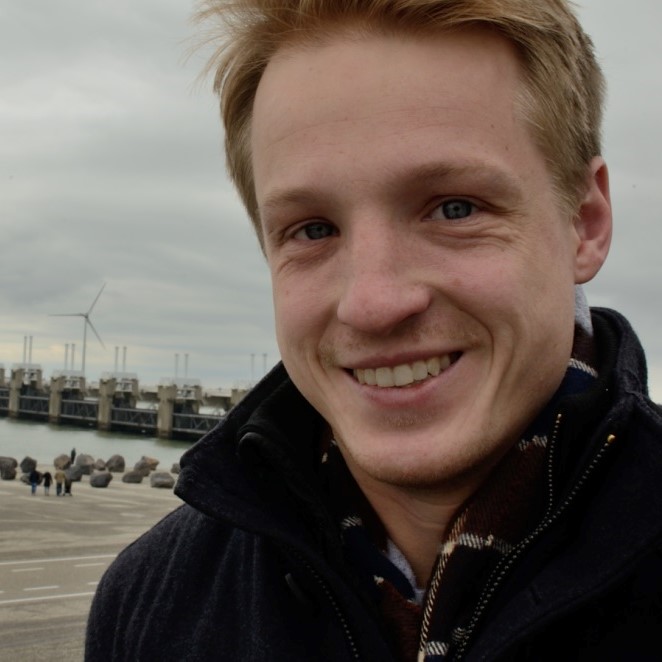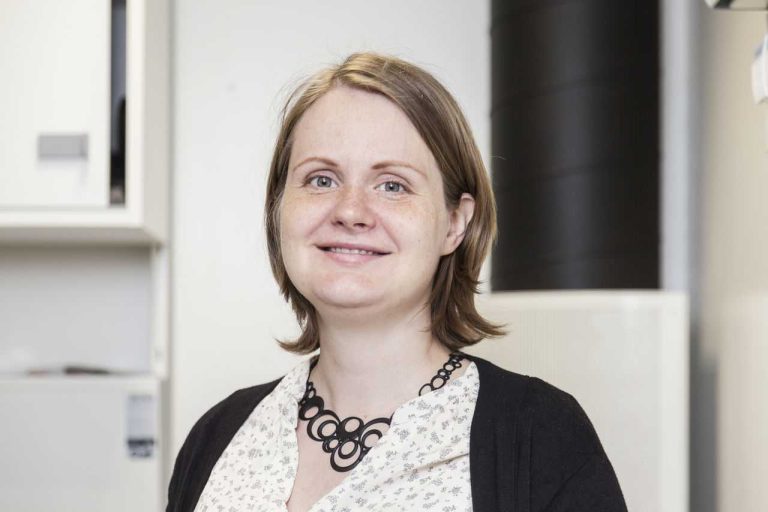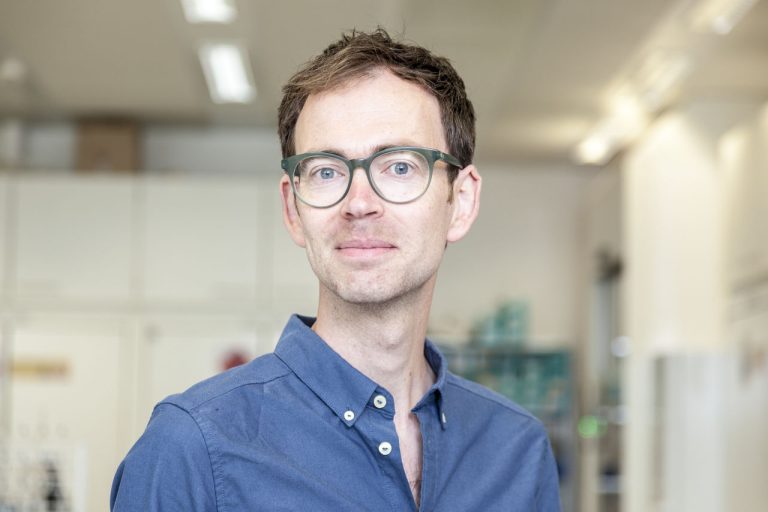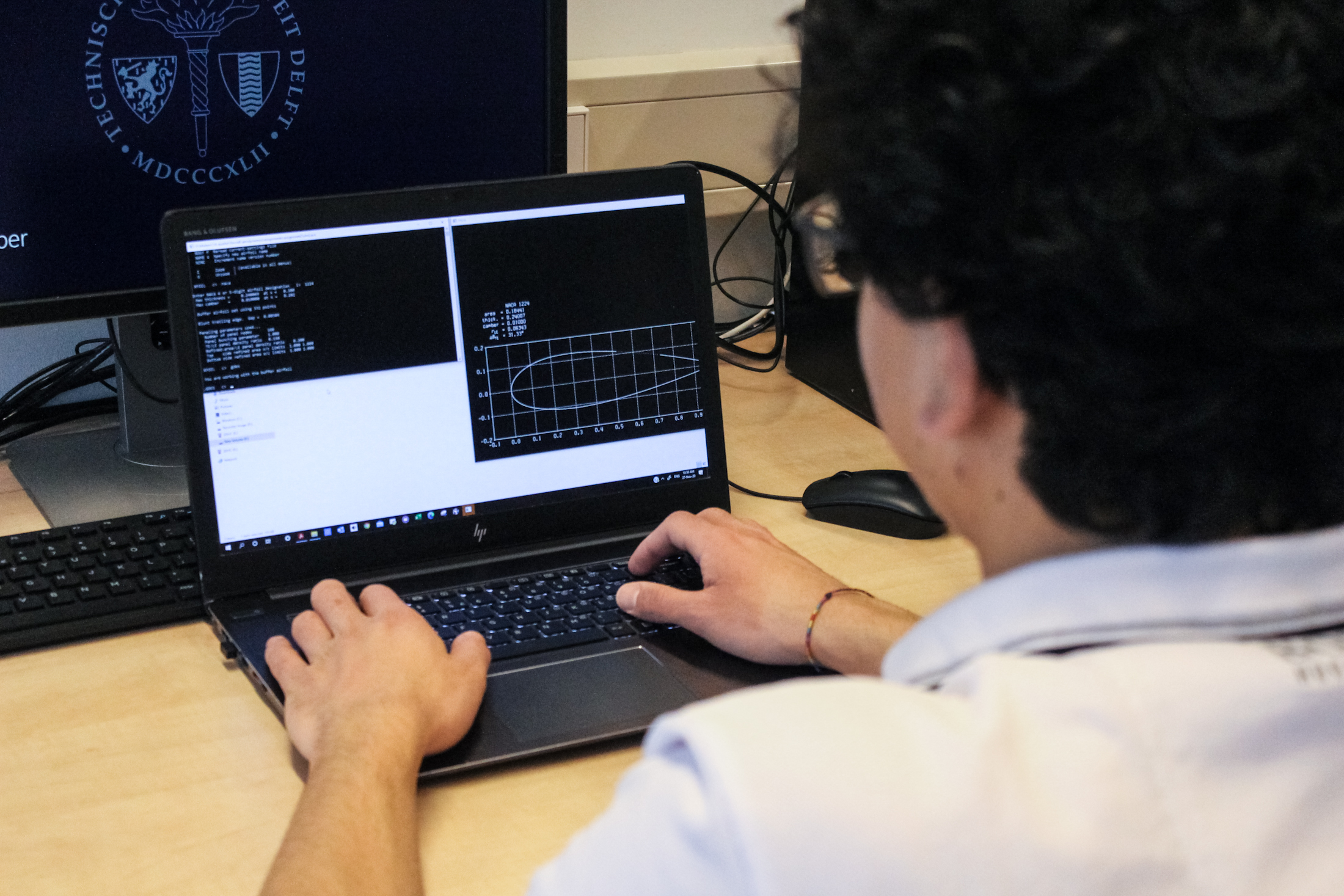The chance of being granted funds from NWO has been shockingly low for years. Delta spoke to three scientists who know what it is like to lose out. “A lot of energy wasted.”
The balance is out of kilter. Researchers are spending too much time on applying for research funds. (Photo: Dalia Madi)
While the wheat does have to be separated from the chaff, the Netherlands’ most important scientific funder, NWO, has gone to extremes. This was the conclusion of an evaluation committee led by Alexander Rinnooy Kan a few months ago. The competition is killing and researchers are putting huge amounts of time into preparing their proposals. And even if these are excellent, there is often simply not enough money to honour them.
Things often go wrong with the NWO Talent programme (previously the Innovative Research Incentive programme). The Talent programme consists of three types of funding, depending on the scientific career phase of the researcher. The phases are: Veni, for researchers who just obtained their doctorates; Vidi, for experienced researchers; and Vici, for researchers who have demonstrated that they are able to develop their own direction of research.
For years now, the success rate of Veni proposals has been around 14%. In the case of Vidi, it swings between 15% and 20%; and Vici between 10% and 15%. The Committee believes that more money should be made available and part of it used for rolling grants. These are funds for individual scientists’ choice of research. A great outlook.
What is it like to scrabble for money under the current system? Delta spoke to three researchers, each of whom applied for NWO Veni, Vidi or Vici funds last year.


Dr Abel-John Buchner (3mE) is studying the aerial dynamics of malaria mosquitoes. These insects mate in the air and this involves highly acrobatic skills. Better understanding of this dance may just lead to coming up with better pest control.
As this research goes right to the basics, you need to do it through a university and this is why Buchner applied for a Veni grant in 2019. That money would enable the then postdoc – he was not in employment at that stage – to continue his research at TU Delft. But he applied for that money in vain.
A rejection like this could very well mean the end of your scientific career at a university. If you are not in permanent employment – Buchner was on a temporary postdoc contract – there are few sources of funding for you.
“The Veni is one of the few individual subsidies granted to researchers who are starting out. You need to be in employment to apply for most of the others. If you are lucky, apart from any grants you may obtain, you may receive an offer as a tenure tracker. This will open doors. However, you often get a permanent appointment like this only after receiving a Veni. So you really need that NWO grant to give you freedom.”
‘You put hundreds of hours into the application’
“What makes it even worse is the fact that you spend hundreds of hours on a proposal, often in the weekends and evenings. Postdocs have obligations and those need to continue too. It is a very stressful time.”
Buchner was more successful last year. He submitted his proposal a second time after having tweaked it and this time was luckier. He submitted his proposal just in time. “You may apply twice within three years of your doctoral dissertation defence. I was actually too late, but because my child was born during that period, they gave me six months extra.”
In fact, Buchner had twice as much luck in 2020. Before his application was approved, he was offered a permanent research job at 3mE. This is quite exceptional.


It was touch and go. In 2020, Dr Monique van der Veen was granted a Vidi grant for research into catalysed reactions. “I think I only just got it. The interview did not go that well. The difference in quality between proposals that just cross the finishing line and those that do not cannot be defined objectively. Yet, the difference it makes to the careers of the applicants is enormous.”
Vidi, Vici and the European ERC grants are very prestigious. Just having one on your CV when applying elsewhere for new grants gives you a higher chance as you tend to be evaluated on previously awarded grants. It has a snowball effect, says Van der Veen.
The reverse can be disastrous, at least for scientists wanting to do basic research. “It is really hard for them if they do not obtain any individual grants. All they can then do is shift focus and do more applied research with industrial partners. There are still opportunities there, and the success rate of project applications is higher.”
“I had previously applied for a Vidi grant but did not get it. So I can definitely talk about unsuccessful applications. I only felt ‘calm’ in my job here when I netted a large project (a European ERC grant three years ago, Eds.). And I had already been in a tenure track position for four years by then. I can imagine that a tenure tracker that has hardly obtained any grants feels very insecure.”
‘Your application is evaluated by people who do not always have a solid understanding of the subject’
Van der Veen believes that the NWO grant procedure has one obstacle that leads to more randomness than the European grant circus. “In the case of NWO, it is often only the scientists in a particular subject area who are located in the Netherlands that are asked by the scientific funder to have a seat on the evaluation committee. The Netherlands is a small country. Researchers know each other personally and often have to opt out of evaluating proposals because of a conflict of interests. The result is that your application is evaluated by people who do not always have a solid understanding of the subject.”
Van der Veen says that other small countries solve this issue by getting half of the committee members from abroad.
“Many people believe – and I have discussed this often with colleagues – that European applications are evaluated more thoroughly as the committees have more people with relevant knowledge. If you are invited by the EU to discuss your application, the questions are usually very relevant. In the case of NWO, the interviewers sometimes shoot off a series of questions that are much less relevant. You need to take great care that you do not succumb to these trivialities”


“Admittedly it was a pretty thin proposal in the end, so it was understandable that it was rejected.” Chemist Dr Rienk Eelkema (AS) is referring to the Vici proposal on researching a new type of polymer that he submitted last year.
It was not successful, but Eelkema is not complaining. In the years before that, many of his proposals had been successful. Among them were a Rubicon Postdoctoral Research Fellowship Grant, a Marie Curie Postdoctoral Research Fellowship Grant, and even a highly prized Veni and Vidi.
“I can usually accurately estimate the amount of time I need to write a research proposal, but it went horribly wrong last year. I had to manage my research group remotely because of corona and designing a new methodology took up a lot of time. And in October, the laboratory course for students had to be completely changed.”
That he missed out this time may be understandable, but this is not the case for dozens, or even hundreds, of other researchers. Every year hundreds of scientists apply for a Vici, but only 10% to 15% are honoured. “That is really tough,” says Eelkema.
“After the first selection, NWO still retains a lot of proposals that are really good. A lot of wasted energy.”
- Response from NWO
On its website, NWO has issued a response to the Evaluation Committee report. On transparency and effectiveness, it writes ‘We take the Committee’s call very seriously. The recent publication of the complete overview of all NWO calls that are expected within one year is the first step. NWO is also working on further simplifying its grant instruments. NWO will continue putting its efforts, in compliance with legal directives, into finding the right balance between ‘objectivity’ and ‘proximity’, as the Committee recommends. It is important to have each proposal reviewed by the right experts, and certainly in the case of programmes that need a broad Evaluation Committee.’
Do you have a question or comment about this article?
tomas.vandijk@tudelft.nl


Comments are closed.